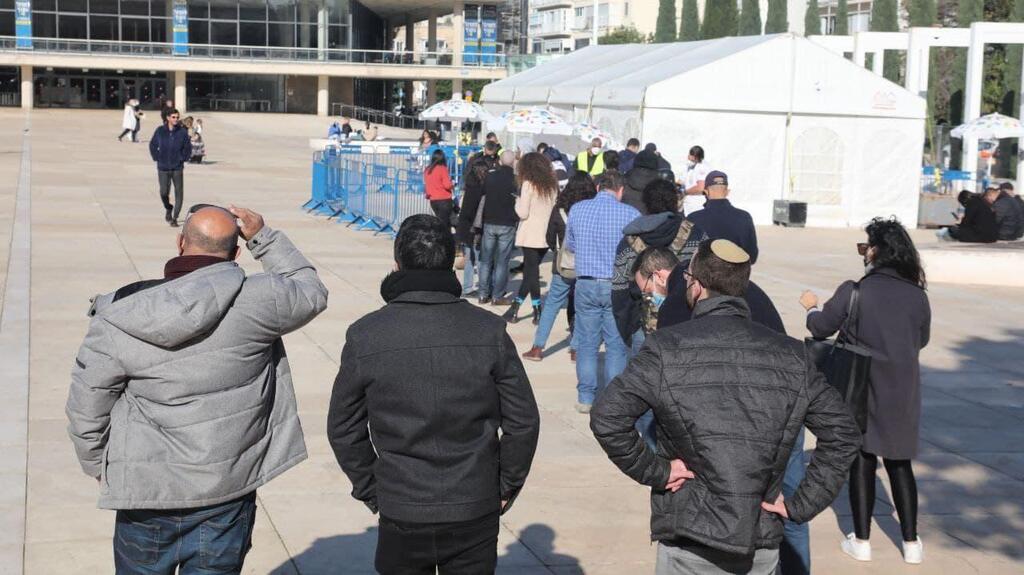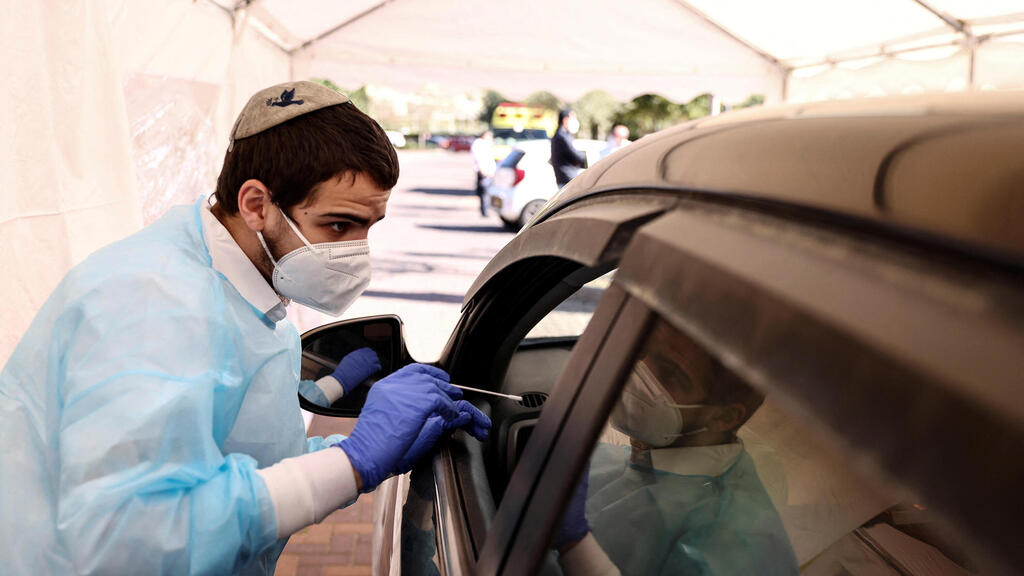Getting your Trinity Audio player ready...
Tens of thousands of Israelis who had previously recovered from COVID-19 were re-infected, the Health Ministry said late on Wednesday.
Over 70,000 recovering Israelis who had not received the coronavirus vaccines, contracted the disease again since the beginning of the year, 7,459 on Tuesday alone out of the 72,120 confirmed cases.
According to the ministry data, there were only rare cases reported, of infections in those who had recovered from COVID until August, but since the spread of the Omicron variant, 10% to 12% of daily cases were among that population group.
Most of those repeat infections were among unvaccinated Israelis, most of them in the 20 to 29 age group, followed by people in their 30s.
Experts say they were not surprised by the data. "Coronavirus, we know does not provide strong immunity for a long period of time," Professor Cyrille Cohen of the Bar-Ilan University said.
"There is a variant that is different from earlier variants of the virus, so the immune system does not recognize it in the same way and in some patient's the body acts like it was exposed to a new virus," he said.
Professor Galia Rahav, head of infectious diseases at the Sheba Medical Center said there are even cases of an infection by omicron in those who recovered from an illness caused by the variant. But in her view, "Those who were infected are more protected than those who had not been exposed to the virus, at all."
The ministry also revealed on Wednesday evening that their data shows the pediatric coronavirus vaccine provides a high rate of protection from infection by Omicron during the first three months.
Children aged 5 to 11 who had received two doses of the vaccine were twice as protected as those who had not been vaccinated at all.
In the 12 to 15 age group, those who had received a booster shot in recent months were found to be four times more protected than the unvaccinated, in the same age group.
In a study conducted by the Weizmann Institute of Science, Hebrew University, the Sheba Medical Center and the Gertner Institute, which was quoted by the ministry, data shows a high level of protection exists during the first four months following vaccination but drops soon after.
First published: 08:19, 01.20.22



